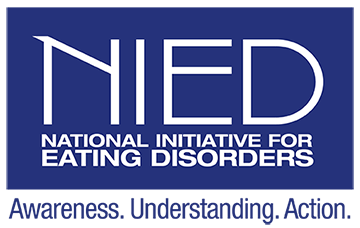
Why NIED?
Eating Disorders are serious but treatable mental illnesses that can affect anyone regardless of gender, age, racial and ethnic identity, sexual orientation or socio-economic background. While it is well documented that mental illnesses are a leading cause of premature death in Canada1, it is less known that Eating Disorders have the highest overall mortality rate of any mental illness, with estimates between 10-15%.
Vision
That all Canadians affected by Eating Disorders and related mental illnesses have equitable access to high quality publicly covered health care and social services to support their recovery, no matter where they live in Canada.
Mission
NIED assists people cope with the effects of Eating Disorders by providing access to educational, informational and other recovery-oriented resources related to the prevention and treatment of Eating Disorders and related mental illnesses in Canada.
Purpose
NIED uses research evidence and insights from people with lived experience and professionals to design high quality educational resources aimed at supporting improvements in well-being and recovery from Eating Disorders.
New Strategic Direction
In support of these recommendations made by stakeholders across Canada in 2016, as well as caregivers and people with lived experienced in 2017 and 2018, NIED has updated its organizational strategy to focus exclusively on providing access to educational, informational and other recovery-oriented resources related to the prevention and treatment of Eating Disorders and related mental illnesses in Canada
In late 2018, NIED adopted a new, multi-year Strategic Plan: 2019-2021. We are implementing our strategic plan with the help of exceptional volunteers and new partnership opportunities. We are also guided by a new, co-designed pan-Canadian strategy focused on improving outcomes for Eating Disorders in Canada between 2019 and 2029.
